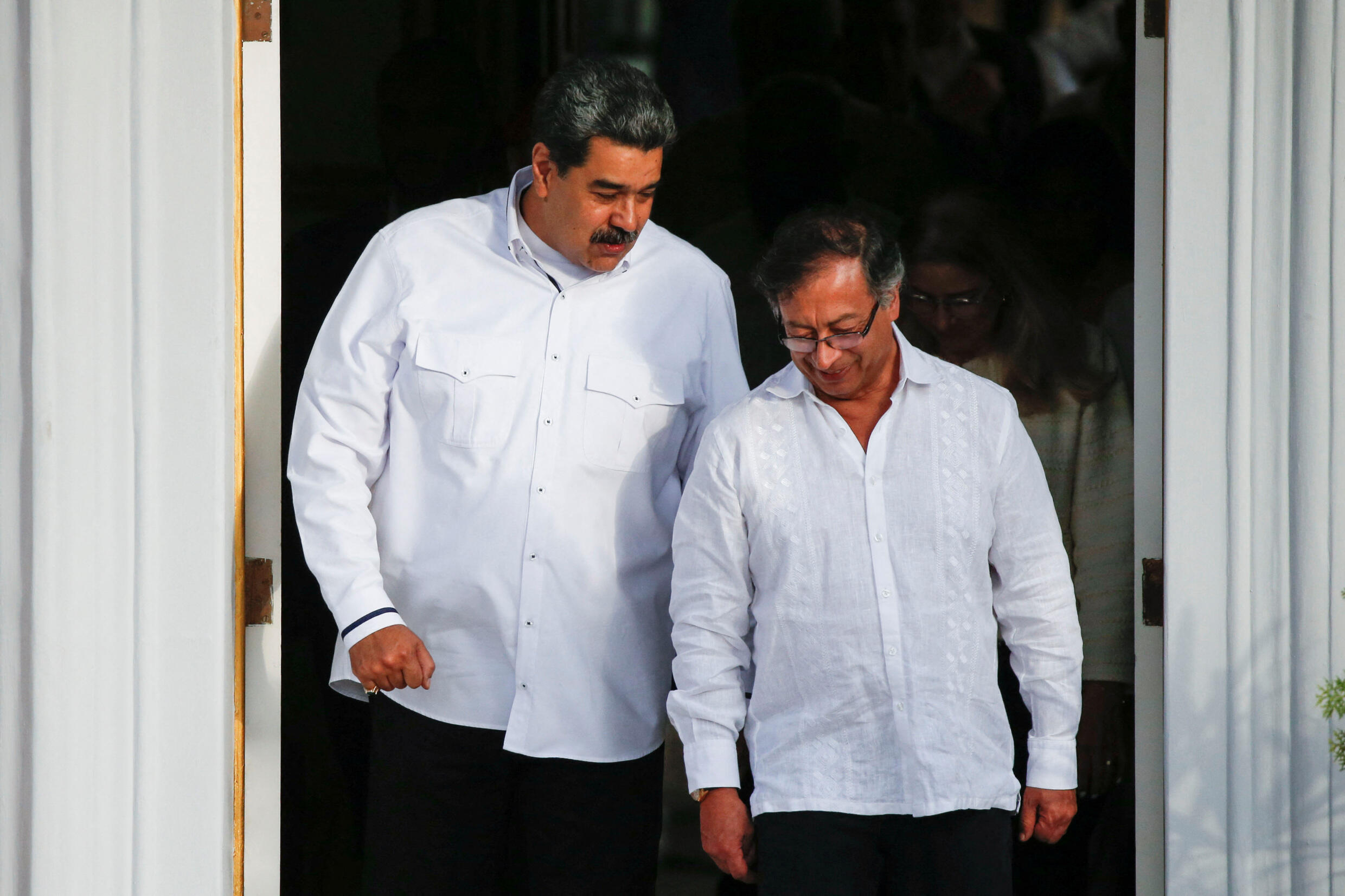First modification:
According to the joint statement, both heads of state carried out an “exhaustive review” of the progress of the bilateral relationship. There were 7 highlights at the meeting, according to the parties. This is the second face to face of both leaders since November 1 of last year.
An impossible scenario a few months ago. The second visit of the president of Colombia, Gustavo Petro, to Venezuela marks the new relations between Bogotá and Caracas. Both parties describe the meeting as an “extraordinary bilateral meeting”.
Petro was received at the Simón Bolívar international airport by his ambassador, Armando Benedetti. He then went to the Miraflores palace, seat of the Venezuelan presidency, where he was welcomed with military honors.
Earlier, the Colombian diplomatic representative in Caracas affirmed that he accompanied the meeting with “the conviction to continue working for a common agenda between two sister nations.”
The meeting lasted for about three hours. In it, the forged agreements were reviewed. According to the joint statement published by the parties, both heads of state “carried out an exhaustive review of the fundamental issues of the bilateral relationship.”
points on the table
The note released by both delegations highlighted seven issues discussed, although they were not all that were put on the table.
The first of them affirms that Venezuela, as a country that guarantor of the dialogue between Colombia and the ELN guerrilla “will support the Government of Colombia in its objective to maintain the bilateral cessation and total peace.” This in a complex context of the process that seeks an end to the confrontations promoted by President Petro.
Last Tuesday the armed group stated that there was no bilateral ceasefire agreement with the State. The following day, the Government suspended the legal effects of the interruption of the clashes.
In the fourth point, the “progress achieved in the opening of the border bridges between Colombia and Venezuela” is highlighted, which has improved the conditions of Colombian and Venezuelan citizens in the areas included as borders.
This aspect also underlines that instructions will be issued “to the local and regional border authorities so that the process of opening all border crossings for the international transport of goods and passengers, both in public service and in private vehicles, is completed.”
With the President of the Republic of Colombia, Gustavo Petro, we had a broad and very fruitful meeting. We have a clear joint work path that will continue to yield positive results for our countries, in different areas. Long live the union between Colombia and Venezuela! pic.twitter.com/Gi4fDnZgZF
— Nicolas Maduro (@NicolasMaduro) January 7, 2023
The sixth calls for “reviewing binational projects in terms of infrastructure projects for connectivity, energy, and food production and processing.”
More was also learned about the progress achieved in the completion of the “negotiation of the Agreement on the Promotion and Reciprocal Protection of Investments”, the agreement that governs bilateral trade, specifically those of “Market Access, Sanitary and Phytosanitary Affairs and the Economic Complementation Framework Agreement”.
Sustainable development in border areas, the joint promotion of binational complementation agreements and the creation of a technical commission for the formulation of connectivity projects between the Caribbean Sea and the Colombian Pacific, were also discussed.

Both Gustavo Petro and Nicolás Maduro “celebrate the good relations and permanent communication between the two nations to achieve common objectives,” the joint statement concluded.
Relaunch of relations: a boost to Maduro
After the arrival in 2022 of President Gustavo Petro at the Nariño Palace, relations between the two nations resumed, which was an important recognition of Maduro. Diplomatic ties had been severed since 2019 under the administration of President Iván Duque, who recognized opposition figure Juan Guaidó as interim Venezuelan head of state.

The story today is different. Guaidó, initially identified by a large part of the international community as provisional president, gradually lost strength until he was ruled out by the same Venezuelan opposition. Petro resumed ties with Caracas, which gave a boost to Maduro, who returned to the international scene with the push that also meant the energy crisis caused by the Russian invasion of Ukraine.
In this sense, Venezuela has one of the largest proven oil reserves in the world.
With local media and EFE




![[Img #74661]](https://thelatestnews.world/wp-content/uploads/2024/12/The-power-of-ultrasound-150x150.jpg)









